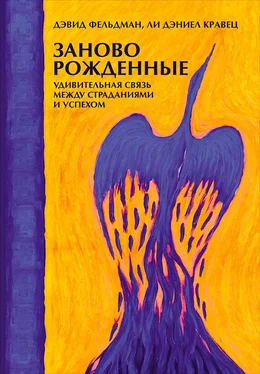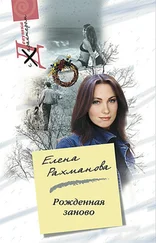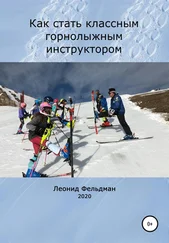Frazier, P., H. Tennen, M. Gavian, C. Park, P. Tomich, and T. Tashiro. “Does Self-Reported Posttraumatic Growth Reflect Genuine Positive Change?” Psychological Science 20 (2009): 912–19.
Gean, A. D., and N. J. Fischbein. “Head Trauma.” Neuroimaging Clinics of North America 20, no. 4 (2010): 527–56.
Gernsbacher, M. A., R. W. Pew, L. M. Hough, and J. R. Pomerantz. Psychology and the Real World: Essays Illustrating Fundamental Contributions to Society. New York: Worth Publishers, 2011.
Gunty, A. L., P. A. Frazier, H. Tennen, P. Tomich, T. Tashiro, and C. Park. “Moderators of the Relation between Perceived and Actual Posttraumatic Growth.” Psychological Trauma: Theory, Research, Practice, and Policy 3 (2011): 61–66.
Helgeson, V. S., K. A. Reynolds, and P. L. Tomich. “A Meta-Analytic Review of Benefit Finding and Growth.” Journal of Consulting and Clinical Psychology 74 (2006): 797–816.
Herman, J. Trauma and Recovery: The Aftermath of Violence from Domestic Abuse to Political Terror. New York: Basic Books, 1992.
Kessler, R. C., A. Sonnega, E. Bromet, M. Hughes, and C. B. Nelson. “Posttraumatic Stress Disorder in the National Comorbidity Survey.” Archives of General Psychiatry 52 (1995): 1048–60.
Linley, P. A., and S. Joseph. “Positive Change Following Trauma and Adversity.” Journal of Traumatic Stress 17 (2004): 11–21.
McMillen, J. C., E. M. Smith, and R. H. Fisher. “Perceived Benefit and Mental Health after Three Types of Disaster.” Journal of Consulting and Clinical Psychology 65 (1997): 733–39.
Norris, F. H, M. J. Friedman, P. J. Watson, C. M. Byrne, E. Diaz, and K. Kaniasty. “60,000 Disaster Victims Speak — Part I: An Empirical Review of the Empirical Literature, 1981–2001.” Psychiatry: Interpersonal and Biological Processes 65 (2002): 207–39.
Pollard, C., and P. Kennedy. “A Longitudinal Analysis of Emotional Impact, Coping Strategies and Post-Traumatic Psychological Growth Following Spinal Cord Injury: A 10-Year Review.” British Journal of Health Psychology 12 (2007): 347–62.
Sims, T. “Trekking beyond Limits in Antarctica. The New York Times, October 21, 2011. http://www.nytimes.com/2011/10/22/sports/22iht-athlete22.html?_r=0.
Tedeschi, R. G., and L. G. Calhoun. “The Posttraumatic Growth Inventory: Measuring the Positive Legacy of Trauma.” Journal of Traumatic Stress 9 (1996): 455–71.
Tedeschi, R. G., and L. G. Calhoun. “Posttraumatic Growth: Conceptual Foundations and Empirical Evidence.” Psychological Inquiry 15 (2004): 1–18.
Vrana, S., and D. Lauterbach. “Prevalence of Traumatic Events and Post-Traumatic Psychological Symptoms in a Nonclinical Sample of College Students.” Journal Traumatic Stress 7 (1994): 289–302.
United Nations Development Fund for Women. “Unite to End Violence against Women: United Nations Secretary-General’s Campaign,” New York, 2008. http://www.un.org/en/women/endviolence/world.shtml.
World Health Organization. “Road Traffic Injuries.” Geneva, 2013. http://www.who.int/mediacentre/factsheets/fs358/en/.
Zolli, A., and A. M. Healy. Resilience: Why Things Bounce Back. New York: Free Press, 2012.
2
Armstrong, L. It’s Not about the Bike: My Journey Back to Life. New York: Berkley Trade, 2001.
Braver, R., senior correspondent. “Just How Powerful Is Positive Thinking?” [television broadcast]. CBS Sunday Morning, November 22, 2011.
Buckelew, S. P., R. S. Crittendon, J. D. Butkovic, K. B. Price, and M. Hurst. “Hope as a Predictor of Academic Performance.” Psychological Reports 103 (2008): 411–14.
Cheavens, J. S., D. B. Feldman, A. Gum, S. T. Michael, and C. R. Snyder. “Hope Therapy in a Community Sample: A Pilot Investigation.” Social Indicators Research 77 (2006): 61–78.
Chida, Y., and A. Steptoe. “Positive Psychological Well-Being and Mortality: A Quantitative Review of Prospective Observational Studies.” Psychosomatic Medicine 70 (2008): 741–56.
Coyne, J. C. “Was It Shown That ‘Close Relationships and Emotional Processing Predict Decreased Mortality in Women with Breast Cancer’? A Critique of Weihs et al.” Psychosomatic Medicine 70 (2008): 737.
Coyne, J. C., T. F. Pajak, J. Harris, A. Konski, B. Movsas, K. Ang, and D. W. Bruner. “Emotional Well-Being Does Not Predict Survival in Head and Neck Cancer Patients: A Radiation Therapy Oncology Group Study.” Cancer 110 (2007): 2568–75.
Coyne, J. C., M. Stefanek, and S. C. Palmer. “Psychotherapy and Survival in Cancer: The Conflict between Hope and Evidence.” Psychological Bulletin 133 (2007): 367–94.
Coyne, J. C., H. Tennen, and A. V. Ranchor. “Positive Psychology in Cancer Care: A Story Line Resistant to Evidence.” Annals of Behavioral Medicine 39 (2010): 35–42.
Curry, L. A., C. R. Snyder, D. L. Cook, B. C. Ruby, and M. Rehm. “Role of Hope in Academic and Sport Achievement.” Journal of Personality and Social Psychology 73 (1997): 1257–67.
Ehrenreich, B. Bright-Sided: How Positive Thinking Is Undermining America. New York: Henry Holt, 2009.
Feldman, D. B., and D. E. Dreher. “Can Hope Be Changed in 90 Minutes? Testing the Efficacy of a Single-Session Goal-Pursuit Intervention for College Students.” Journal of Happiness Studies 13 (2012): 745–59.
Feldman, D. B., K. L. Rand, and K. Kahle-Wrobleski. “Hope and Goal Attainment: Testing a Basic Prediction of Hope Theory.” Journal of Social and Clinical Psychology 28 (2009): 479–97.
Feldman, D. B., and C. R. Snyder. “Hope and the Meaningful Life: Theoretical and Empirical Associations between Goal-Directed Thinking and Life Meaning.” Journal of Social and Clinical Psychology 24 (2005): 401–21.
Gallagher, B. “Maarten van der Weijden: Don’t Call Me Lance Armstrong.” The Daily Telegraph, August 21, 2008. http://www.telegraph.co.uk/sport/olympics/2594982/Maarten-van-der-Weijden-Dont-сall-me-Lance-Armstrong.html.
Goodwin, P., M. Leszcz, M. Ennis, J. Koopmans, L. Vincent, H. Guther, and J. Hunter. “The Effects of Group Psychosocial Support on Survival in Metastatic Breast Cancer.” The New England Journal of Medicine 345 (2001): 1719–26.
Gore-Felton, C., and D. Spiegel. “Enhancing Women’s Lives: The Role of Support Groups among Breast Cancer Patients.” Journal for Specialists in Group Work 24 (2008): 274–87.
Heckhausen, J., C. Wrosch, and W. Fleeson. “Developmental Regulation before and after a Developmental Deadline: The Sample Case of ‘Biological Clock’ for Childbearing.” Psychology and Aging 16 (2001): 400–13.
Hull, S. J. “Perceived Risk as a Moderator of the Effectiveness of Framed HIV-Test Promotion Messages among Women: A Randomized Controlled Trial.” Health Psychology 31 (2012): 114–21.
Irving, L. M., C. R. Snyder, and J. Cheavens. “The Relationships between Hope and Outcomes at the Pretreatment, Beginning, and Later Phases of Psychotherapy.” Journal of Psychotherapy Integration 14 (2004): 419–43.
Janz, N. K., and M. H. Becker. “The Health Belief Model: A Decade Later.” Health Education Quarterly 11 (1984): 1–47.
Lieven, P., W. Frank, B. Gerben, and W. Bernasco. “Perceived Sanction Risk, Individual Propensity and Adolescent Offending: Assessing Key Findings from the Deterrence Literature in a Dutch Sample.” European Journal of Criminology 8 (2011): 386–400.
Miller, G. E., and C. Wrosch. “You’ve Gotta Know When to Fold ’Em: Goal Disengagement and Systemic Inflammation in Adolescence.” Psychological Science 18 (2007): 773–77.
Moser, R. P., K. McCaul, E. Peters, W. Nelson, and S. E. Marcus. “Associations of Perceived Risk and Worry with Cancer Health-Protective Actions.” Journal of Health Psychology 12 (2007): 53–65.
Neter, E., A. Litvak, and A. Miller. “Goal Disengagement and Goal Re-Engagement among Multiple Sclerosis Patients: Relationship to Well-Being and Illness Representation.” Psychological Health 24 (2009): 175–86.
Читать дальше
Конец ознакомительного отрывка
Купить книгу










